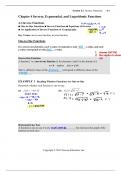Summary
Othello: summary notes for every scene, contextual information & quote banks
Includes: - Detailed contextual notes - Scene-by-scene summaries - Key quote banks - Links to the wider tragic genre throughout - An explanation of the play's ending
[Show more]





